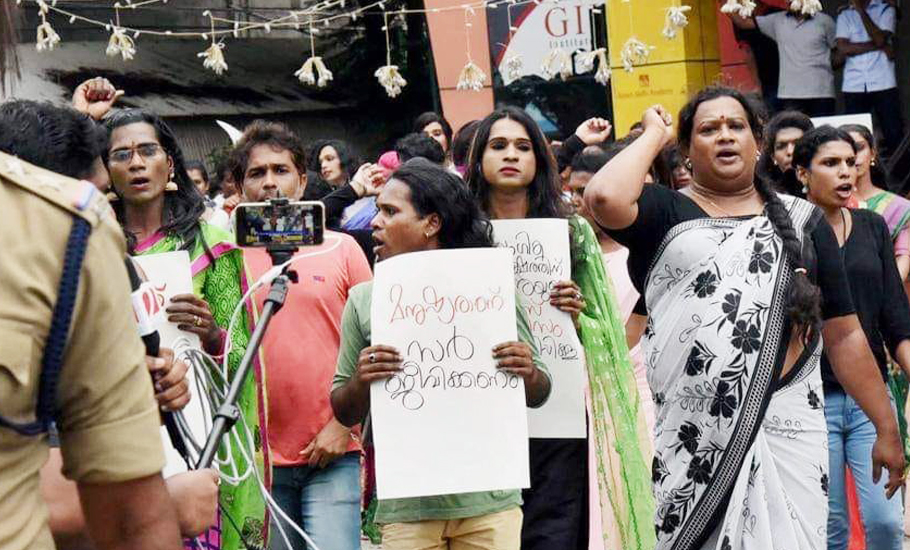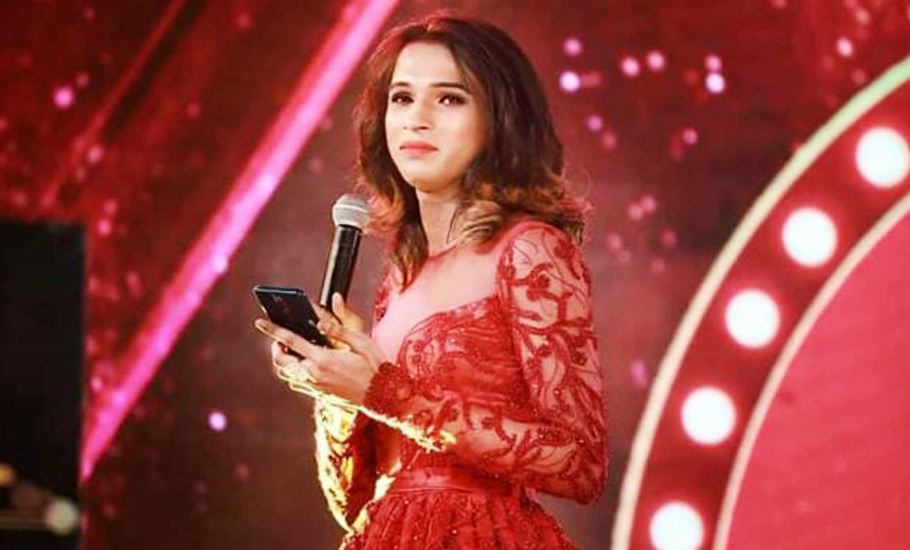
- Home
- India
- World
- Premium
- THE FEDERAL SPECIAL
- Analysis
- States
- Perspective
- Videos
- Sports
- Education
- Entertainment
- Elections
- Features
- Health
- Business
- Series
- In memoriam: Sheikh Mujibur Rahman
- Bishnoi's Men
- NEET TANGLE
- Economy Series
- Earth Day
- Kashmir’s Frozen Turbulence
- India@75
- The legend of Ramjanmabhoomi
- Liberalisation@30
- How to tame a dragon
- Celebrating biodiversity
- Farm Matters
- 50 days of solitude
- Bringing Migrants Home
- Budget 2020
- Jharkhand Votes
- The Federal Investigates
- The Federal Impact
- Vanishing Sand
- Gandhi @ 150
- Andhra Today
- Field report
- Operation Gulmarg
- Pandemic @1 Mn in India
- The Federal Year-End
- The Zero Year
- Science
- Brand studio
- Newsletter
- Elections 2024
- Events
- Home
- IndiaIndia
- World
- Analysis
- StatesStates
- PerspectivePerspective
- VideosVideos
- Sports
- Education
- Entertainment
- ElectionsElections
- Features
- Health
- BusinessBusiness
- Premium
- Loading...
Premium - Events

What compelled Kerala to move towards a protocol for gender affirmation procedure

On July 20, 2020, Anannyah Kumari Alex, a trans woman who had undergone a ‘sex reassignment surgery’ took her own life in her rented flat in Kochi after being unable to bear the physical and mental agony of the post-operative period. Unable to handle the grief, a day after her death, Anannyah’s partner Jiju also died by suicide. Alex was a multifaceted personality who had been emerging...
On July 20, 2020, Anannyah Kumari Alex, a trans woman who had undergone a ‘sex reassignment surgery’ took her own life in her rented flat in Kochi after being unable to bear the physical and mental agony of the post-operative period. Unable to handle the grief, a day after her death, Anannyah’s partner Jiju also died by suicide.
Alex was a multifaceted personality who had been emerging fast as a notable voice among the queer community. As the first transgender radio jockey (RJ) in Kerala, she had cultivated a decent fan base. By anchoring the 25th International Film Festival of Kerala held in February 2021, she had become the first trans person to do so. She was also the first transgender person to file nomination for the assembly elections in Kerala, though she withdrew the nomination from Vengara constituency after falling out with the Democratic Social Justice Party (DSJP). She had accused DSJP leaders of sexism and queerphobia.
Death of such a well-known couple shocked the community and led to protests against the hospital that performed the surgery. Alex had publicly spoken out in the days preceding her death on the trauma of her ‘sex reassignment surgery’, alleging malpractice by the private Kochi hospital.
“I am unable to cough or even sneeze. It sprays outside the restroom when I urinate. I must use 8 to 10 sanitary pads every day. I don’t have a single penny to even buy pads,” Alex said during a debate on the social media app Clubhouse.
It was alleged that the moderators did not allow her to participate further in the discussion as the surgeons from the hospital were also present.
After the couple’s death, her friends and community comrades formed a people’s collective Justice for Ananya – State Action Council, which carried out a very detailed fact-finding mission. The team, which had doctors including a psychiatrist, clinical psychologists, academics and transgender and queer community activists, submitted a report to the Kerala government which effectively forced the Social Justice Department to consider formulating a protocol for the gender affirmation procedure.

Unlike the usual action councils, this fact-finding team made a very interesting statement in their report.
“The objective of this fact-finding mission is not to ascertain the cause of Anannya Kumari’s death or find the culprits behind it. Our goal is to bring attention to the problems experienced by trans people and the LGBTQAI community by shedding light on the mysteries surrounding her death, anomalies in the inquiry, and medical institutions’ carelessness.”
Some object to the use of the term gender affirmation itself and say that to begin with the term needs to change.
“The treatment should actually be called a gender affirmation procedure rather than a ‘sexual reassignment procedure’, to start with. Nobody in this room is being assigned a gender identity. Rather, everyone’s affirmation comes from their own inner selves and should be taken as such. Surgery is just one step in this procedure,” Dr AK Jayashree, who was part of the fact-finding team, tells The Federal.
“This process of gender affirmation should be taken in a comprehensive manner. Conflict would arise for persons who discover their gender identity differs from their birth identity. It was seen as a disorder earlier, but now it is termed as gender incongruence, which is not a disease but a situation. If they experience any discomfort, it is called gender dysphoria. This is the stage where the attempt to handle their problems should be started.
Psychological assessment is very important at this stage before the affirmative counselling is given. Earlier, the practice was to put them through ‘conversion therapy’. But this attitude has been changing fast,” Dr Jayashree adds.
The act of transitioning, or changing one’s gender, is not a standard procedure. Depending on the demands of the person, it could involve hormone therapy or a variety of surgeries. Additionally, non-surgical procedures like chest binding or laser hair removal may be used. In general, it should be a fair practise for endocrinologists and surgeons to request a gender dysphoria psychiatric diagnosis if their patient desires to undergo medical and surgical treatment for transitioning.
According to the data available with the Social Justice Department, around 350 persons have undergone surgical procedure for gender affirmation between 2017 and 2022. The first surgery of this sort in Kerala was performed in 2017. This data is derived from the financial aid given by the government of Kerala. As the aid is not given to people above the age of 40, the number of persons who had undergone GAS could go up.
“No specific protocol was followed for these surgeries,” says Navas a transperson who testified before the fact-finding team. People who wanted surgery just went to the hospital, fixed a date and underwent the procedure. Some of them developed complications post-surgery, many of them had to spend more than the estimated amount. Many surgeries were performed in this short period. People as young as even 21 underwent surgeries. Many of them opted for surgery immediately after coming out to their families. Nobody was given any sort of counselling or guidance,” added Navas.
“Aftercare is very important in these sorts of procedures, be it vaginoplasty, castration or shape surgery. There were daily demo models which should be inserted into the newly constructed vagina. It’s a very painful process which needs expertise. The hospitals do not provide nursing assistance for this. They do not even provide the demo model, we have to order it online,” says Sheetal Syam, another trans woman and rights activist.
The fact-finding team considered all these aspects and submitted a detailed report with recommendations to the government. The FFT had found that trans persons who underwent GAS seldom received proper pre- and aftercare, including psychological counselling, which is mandatory as per the guidelines of the WPATH (World Professional Association for Transgender Health). Overall the quality of life of transpersons took a dip after the gender affirmation surgery, given the below par environment for the procedure in the state. In Anannyah Kumari Alex’s case it was a hastily performed procedure, including her primary surgery, which led to further complications and more corrective surgical interventions.

At present, apart from the Government Medical College Kottayam, gender affirmation procedures are performed by private hospitals only. The Kerala government has a scheme to reimburse the amount for the surgery which the committee found was insufficient. Apart from a raise in the amount, what they need is quality aftercare and proper guidance.
“Many of the community members who had undergone the surgery are facing serious health issues. We need to formulate a proper protocol in line with the guidelines issued by the WPATH, opines Syama S Prabha, the first project officer of the transgender cell of the Department of Social Justice. Ensuring pre-counselling and post-counselling should be an important part of the procedure. After Anannyah’s suicide things are slowly changing. Those who underwent surgery after that are better placed, in terms of health. As far as I am concerned, I have comparatively fewer issues. I had some issues for the first four months and now I am good with my hormone medication and all,” says Syama.
The fact-finding team had urged the government to conduct a qualitative study on the gender affirmation surgeries taking place in hospitals in the state. Everyone who comes to hospitals should be ensured of a comprehensive treatment plan and it should be recorder properly.
After the report was submitted, the Social Justice Department took the initiative to organise a workshop for formulating a protocol for the care of transgender people in the state. Along with the report of the FFT, the department considered several other cases of people undergoing surgeries and found that there is a severe lack of post-surgical care, leading to the need for universal guidelines to deal with the health complications impacting such people,” an official says.
“Even though the efforts of the Justice for Anannyah Action Council were not properly acknowledged, it is good to see the government taking positive steps in the matter,” said an activist of the council, who wants to stay anonymous.
“Now with the workshop coming with a preliminary draft of the gender affirmation procedure protocol, what we need is a thorough discussion on it and the draft to be modified accordingly,” added the activist.
“The workshop for formulating the protocol, was convened by the Social Justice Department, but it is the health department that should have been doing this,” says Dr Jayashree.

“But there were some health professionals who participated in the deliberations with genuine intention. Now, the task is to carry this forward without losing the momentum. If GAP could be performed in government sector, it would be much better given that we in Kerala have the best healthcare facilities in the country with properly functioning primary, secondary and tertiary care. This three-tier system could be of great use for those who need gender affirmation procedure and that is where the government needs to step in,” Dr Jayashree says.
(Some of the quotes used in the story have been taken from the interviews done by the fact-finding team.)
